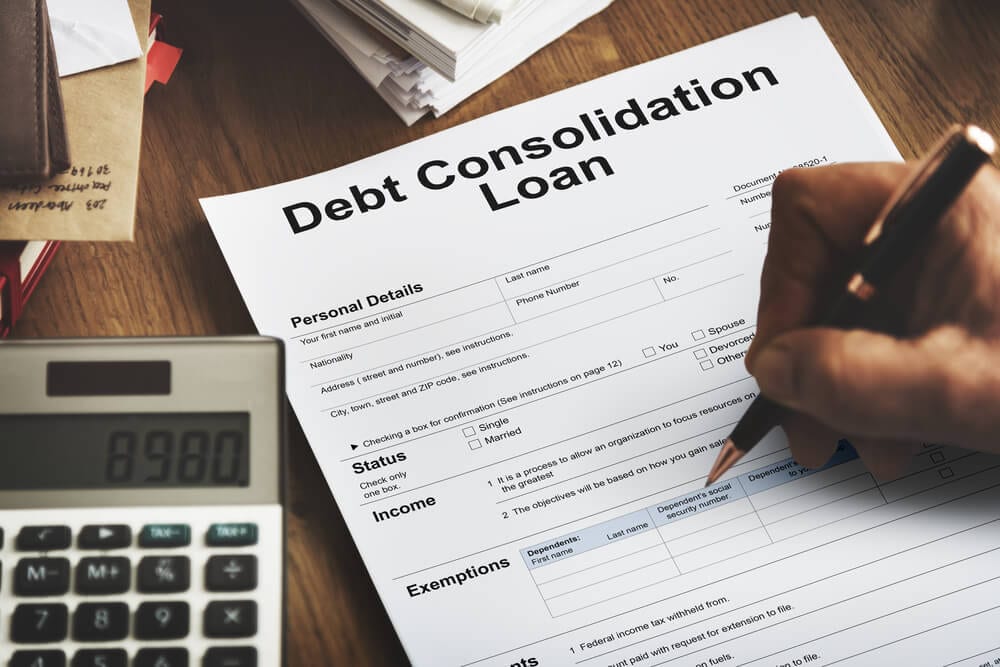Consolidation of debts is a method of debt management that enables you to pay off several different obligations with a single monthly instalment. Having a single account can make it easier to keep track of everything. You may also be able to lower your average interest rate if you have bad credit or card debt.
Taking out a loan to pay creditors is one of the most typical ways to consolidate debts. This loan type may be challenging to secure, but there are a few things you can do to improve your chances. In addition, it’s worth keeping an eye out for other possibilities.
A refinance has many advantages.
There are various reasons why a borrower would benefit from a consolidation loan for bad credit. The following are the most important advantages of taking out a debt consolidation loan:
Streamlining your finances is made easier thanks to a debt consolidation loan. One monthly expense and one lender to worry about may allow you to pay off your debts more regularly and avoid unpaid bills, which can reduce your credit score.
If you can receive a lower interest rate on a consolidation loan for bad credit, then you’re now paying. Credit card rates range from 16 to 20 per cent, and a refinance with an APR of 14 per cent will lower your overall costs.
Loans with fixed interest rates and defined payback terms mean that your monthly bill is the same every month, unlike credit card payments, which can fluctuate wildly from month to month.
How to get a loan to consolidate your debts
For customers seeking debt consolidation loans, each lender establishes its standards. However, your ability to repay a loan is determined by various factors, including your credit score, income, and debt-to-income ratio. A credit score of 650 is often required, but bad-credit debt consolidation providers exist and may take credit ratings as low as 600. Your interest rate will be greater if your credit score is lower than it should be.
How to acquire a negative credit loan for debt consolidation
To qualify for a consolidation loan if you’re struggling to pay off your debts, you’ll likely need a credit score in the 600s, a record of on-time payments, and enough income. Lenders, on the other hand, have varying standards. Find the best debt consolidation personal loans and increase your chances of acceptance by following the following procedures.
Start by keeping an eye on your credit score.
Lenders use your credit score heavily when making loan choices. Lenders will charge a higher rate on a loan if your credit score is lower. The lender’s minimum condition must be met for you to be approved for a consolidation loan. If your credit score is 580 or more down, you may get a loan.
To keep track of your credit score, several institutions provide free tools. It’s much easier to find lenders eager to work with you if you understand your credit score. Even if you have bad credit, some lenders specialise in bad credit loans, and many of them disclose credit score restrictions on their websites.
You should ask your bank or card company if they provide free tools to check your credit score.
Go around and see what’s out there.
Accepting the first loan deal you see is rarely a wise choice. Compare loan amounts, payback periods, and costs from various financial institutions, including national banks, credit unions, and online lenders, rather than relying solely on one source. You could save hundreds or even thousands of dollars by going through this process in the long run.
Online lenders may be an excellent place to start because you can frequently get an idea of interest rates without hurting your credit score by requesting a soft credit check. However, if you already have an excellent relationship with a local bank, they may be more open to overlooking your poor credit history.
Find the best consolidation loan in your situation by comparing your alternatives from multiple lenders. To discover more about each lender’s products and eligibility conditions, visit their website.
Consider a loan with collateral.
It’s common for debt consolidation personal loans to be collateral-free. Consider a secured debt consolidation loan if you’ve been turned down for an economical unsecured debt consolidation loan.
Secured loans necessitate the use of a valuable asset as collateral. If you default on the loan, the collateral typically needs to be worth as much as the loan balance. You may be able to acquire an even lower interest rate on a personal loan than you would on an unsecured one because of this.
Shop around a secure personal loan if you want to boost your chances of getting a loan and getting a lower interest rate.
For the time being, you can work on your credit rating.
If you’ve exhausted all of your options and can’t locate a loan that saves you money, it could be in the best interest to wait until you have a more substantial credit score before applying for a new loan.
Make sure to pay the bills on time each month for a few months as a target. Paying off credit card debt and cutting out all except the most necessary monthly spending, such as memberships and eating out frequently, are also wise moves.
According to Steve Sexton, CEO of Payton Advisory Group, “find a brief plan that assures you are consistently devoting money for debt payments every month.”. Ask your bank or credit union to monitor your progress and apply for a debt consolidation loan once you’ve created some momentum for a few months.” Your best bet is a bank or credit union rather than a lender because they can see that you’ve already started working toward paying off your debt and addressing the problem.”
Check your credit reports for inaccuracies by ordering a free copy from AnnualCreditReport.com once a year or every week through April 2022 if that option is available to you. Equifax, Experian, and TransUnion are the three credit reporting companies with which you can file a dispute if you locate any inaccurate information.
Take these measures to enhance your credit score to ensure you’re getting a cheaper interest rate:
- Make sure you pay your debts on time.
- Pay off enough credit debt as possible.
- Check your credit file for mistakes.











